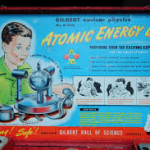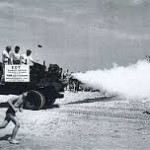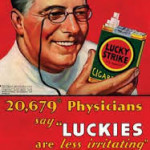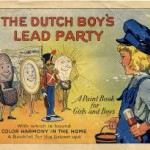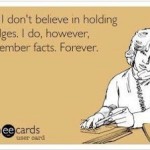Last year I turned Almost 70. It was a bit jolting, but over the past nine months I’ve gotten used to it. However, soon I will be OMG 70, and that looming reality is making me reflective, to say the least. Seventy is an iceberg and I’m the Titanic; 70 is Sitting Bull and I’m Custer; 70 is Mount Vesuvius and I’m a Pompeiian street vendor with a hurt foot. Okay, so that one is a bit of a stretch, but you get the idea. I’m not looking forward to turning 70.
When I was growiing up, 70 was the Old as Dirt age of my storied great-aunt Pobo. We were convinced she would live forever, mainly because Satan found her annoying, too. But, she did, eventually, check out at 72. Seventy was the number you saw littered across the Obits in the newspaper like jellyfish on a Gulf Coast beach. The dread of 70 was so strong in my family, almost everyone managed to die before they got there. “At least he didn’t have to turn 70,” was heard at most of our family funerals.
At a recent holiday party, I discovered that two of the five people at my table were diabetic, all had arthritis, most fell frequently, and we all knew what GERT was.
“What did we talk about at parties when we were young?” one asked.
“Sex?” another suggested.
“Huh?” was the general consensus answer.
I’ve had a cane for several years, a necessity even after three knee replacement surgeries. I use it mostly when shopping so nice people will open doors for me, and when walking on uneven ground so nice people won’t have to call 911 for me. I plan to buy a Medic Alert bracelet as soon as I can find one that reads, “Don’t Get Me Started!”
I have several doctors, each one specializing in a different organ or part of the body. Specialization has become even more targeted, with doctors treating limited areas, and finding a doctor for any one place is like tuning a piano–trial and error until you find the right one.
“I’m sorry. Your knee hurts, and I stop at the elbow. Would you like to see my colleague? He’s a leg man.”
My husband Bryan is finally retiring next month, This decision triggered a whole new batch of experiences. I have waded through the Okefenokee Swamp of Medicare, trudged the Badlands of 401k distribution, and crawled through the Death Valley of Social Security (no pun intended). I was well-prepared for these tasks by my major in Romance Languages in college. It fell to me, instead of my business-degreed husband, because he had all he could handle being a short-timer.
Not that he doesn’t deserve a happy retirement. He has worked since he was sixteen. I am fond of saying he handled data processing for Julius Caesar during the Gallic Wars. Admitted hyperbole, he did start in the days of punch cards. His career was made in the nascent technology world of Texas, which somewhat made up for being shunned at parties after disclosing his occupation. This lasted until the advent of PCs. When everyone had one at home, he became sought-after at parties by people wanting free user support.
We’re still discussing our retirement plan. He wants to be a fulltime Happy Camper. As you might guess, me, not so much. We will reach a compromise eventually, if we just live long enough. After all, we’ll both be in our OMG 70s, and we have to do something before our I Can’t Believe I’m Still Alive 80s.
